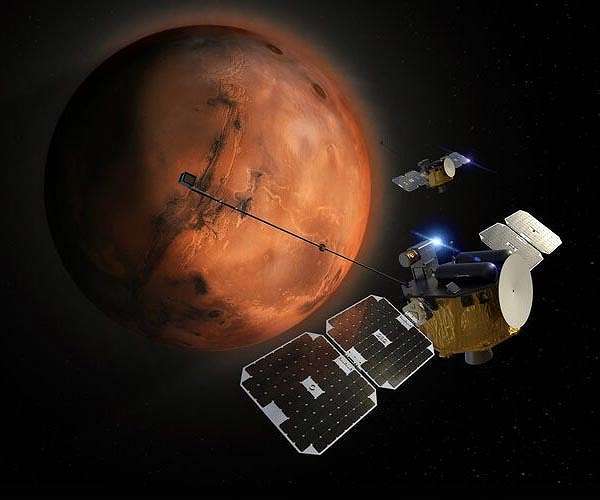23.10.2023

Rocket Lab USA, Inc. has entered a crucial phase in its collaboration with NASA on the ESCAPADE mission, a project aiming to study Mars' hybrid magnetosphere. The company announced that the twin spacecraft for the mission have moved into the system integration phase, aligning with a launch scheduled for 2024.
Spearheaded by Dr. Rob Lillis at the University of California, Berkeley's Space Sciences Laboratory, the ESCAPADE (Escape and Plasma Acceleration and Dynamics Explorers) mission will deploy two spacecraft to orbit Mars. The objective is to investigate a range of factors affecting the Martian magnetosphere, including its structure, composition, variability, and dynamics. Among other goals, the mission aims to deepen our understanding of how the solar wind depletes Mars' atmosphere, thereby shedding light on its climatic history.
The spacecraft are equipped with various instruments. These include a magnetometer for gauging the magnetic field, an electrostatic analyzer for ion and electron measurement, and a Langmuir probe to determine plasma density and measure solar extreme ultraviolet flux.
Navigating Rigorous Testing and Integration
Rocket Lab has completed the System Integration Review (SIR), ensuring the spacecraft can withstand the formidable conditions of space travel and the journey to Mars, which spans approximately 230 million miles. The team is now focusing on integrating the flight hardware, including the spacecraft bus and an array of equipment like solar arrays, star trackers, and radios, all manufactured by Rocket Lab. Instruments from UC Berkeley and other mission partners will also be added to the spacecraft.
In parallel, comprehensive testing is underway. Each spacecraft will go through an array of functional and environmental tests, including vibration and thermal vacuum trials. The tests aim to affirm that the spacecraft can operate under the extreme conditions they will face en route to and in orbit around Mars. Rocket Lab has also confirmed RF compatibility with NASA's Deep Space Network, which will manage communication and navigation services for the mission.
A Milestone in Deep Space Exploration
"Reaching the flight integration phase for a new spacecraft is a significant milestone, especially for a complex interplanetary mission like this," commented Peter Beck, founder and CEO of Rocket Lab. "Building on the successful delivery of a spacecraft to lunar orbit for NASA last year, it's a privilege to be developing a spacecraft headed for deep space to perform Decadal-class science with our partners at UC Berkeley."
The development and testing for ESCAPADE are being conducted at Rocket Lab's Long Beach facility, which boasts a 12,000 sq. ft. cleanroom and 40,000 sq. ft. of specialized production and testing areas.
Launch and Beyond
ESCAPADE falls under NASA's Small Innovative Missions for Planetary Exploration (SIMPLEx) program. The mission will launch in 2024 aboard a Blue Origin New Glenn rocket. After reaching low Earth orbit, Rocket Lab's spacecraft will conduct the Mars transfer, which will include an 11-month cruise and orbit insertion. Once in orbit, they will arrange themselves into a "string of pearls" formation, setting the stage for the scientific phase set to begin in 2026.
Quelle: SD

